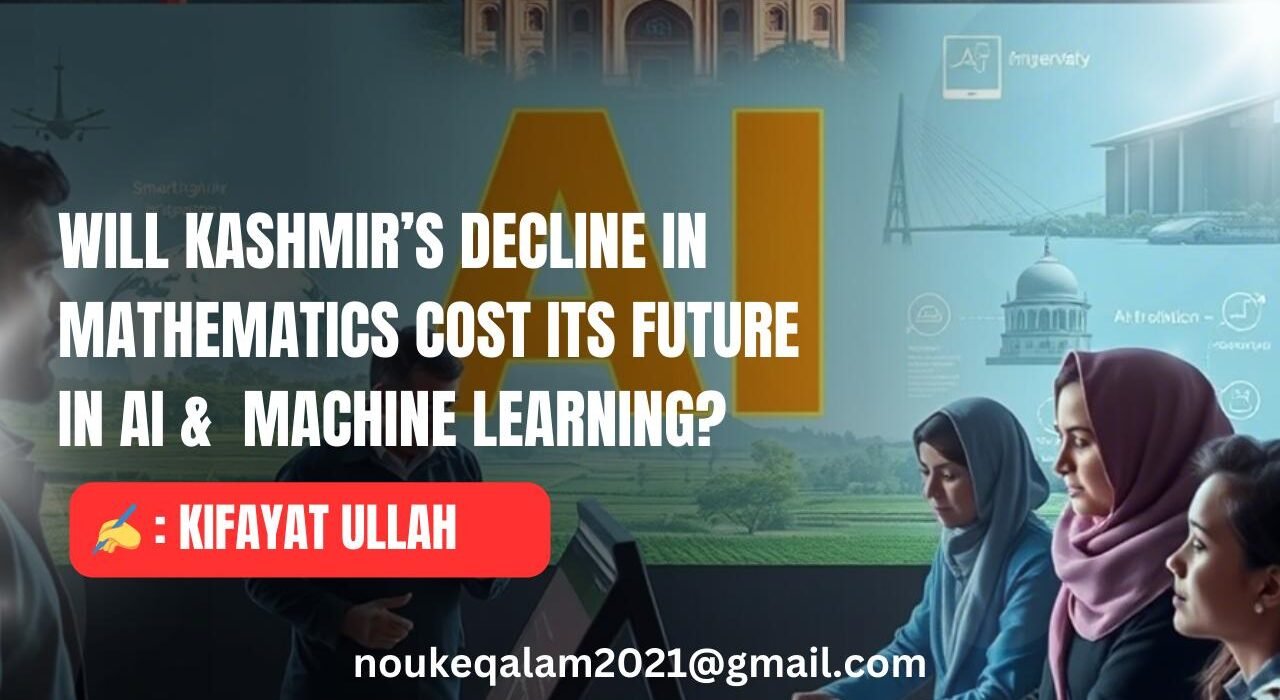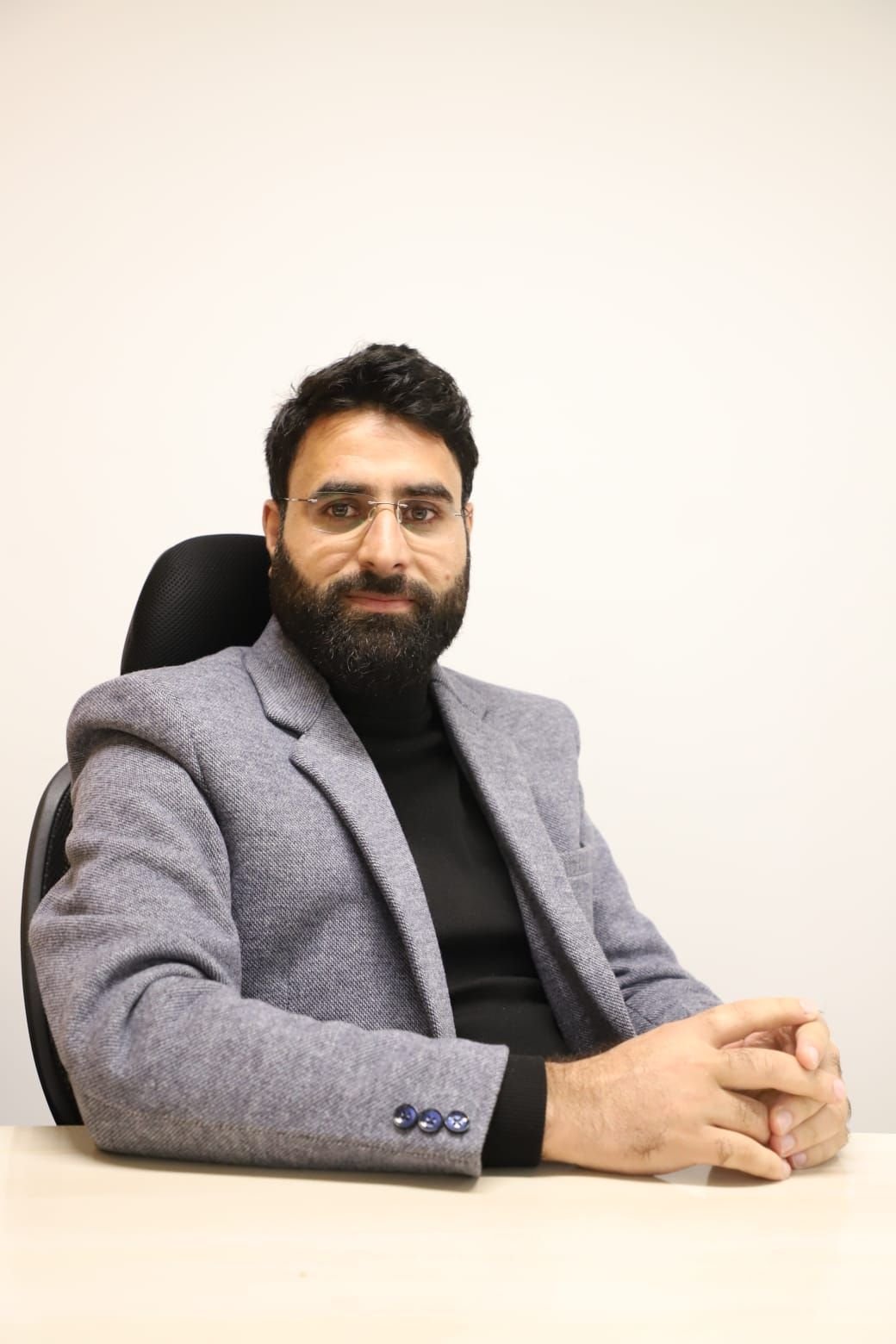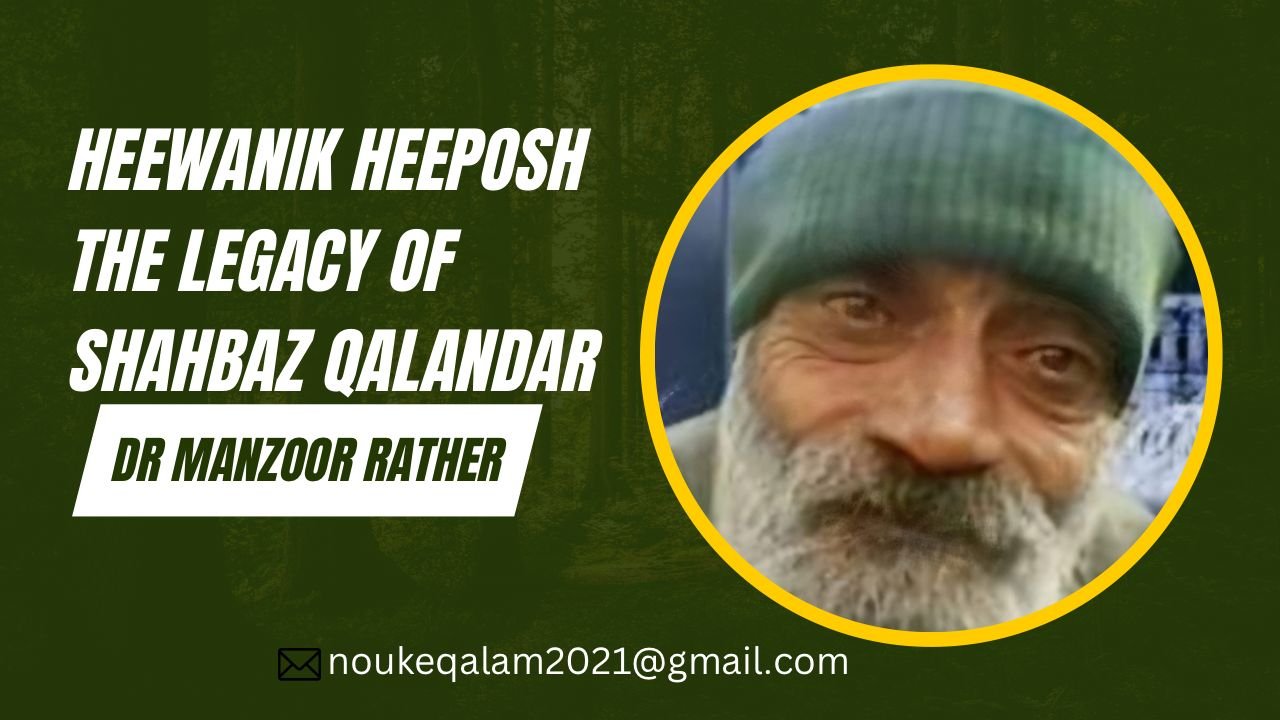Mathematics,long regarded as the foundation of science and technology, is experiencing an alarming decline in the Kashmir Valley. Once considered a subject of intellectual prestige, mathematics is now increasingly seen as a daunting discipline, leading to waning interest among students. This decline comes at a critical time when the world is being reshaped by Artificial Intelligence (AI) and machine learning—fields fundamentally driven by mathematical principles.
In today’s contemporary era, the significance of mathematics transcends its traditional academic boundaries. It serves as the core of technologies revolutionizing industries, from healthcare and finance to transportation and communication. For a region like Kashmir, rich in talent and potential, embracing mathematics is essential to becoming a meaningful contributor to the global technological wave.
AI and machine learning are reshaping the way we interact with the world. From personalized recommendations on streaming platforms to autonomous vehicles, these technologies are changing lives. At the heart of these innovations lie mathematical concepts such as linear algebra, calculus, probability, and optimization. These tools allow machines to learn patterns, make predictions, and solve complex problems with remarkable accuracy.
For instance, neural networks, a cornerstone of machine learning, rely heavily on matrix operations and calculus to train models. Similarly, optimization algorithms like gradient descent ensure that AI systems improve over time. Without mathematics, these breakthroughs would remain unattainable.
As AI becomes integral to industries, nations investing in mathematics education are gaining a competitive edge. For Kashmir, this presents an opportunity to channel its youthful energy toward mastering these skills and emerging as a hub for AI innovation.
One of the significant reasons for the decline in mathematics in Kashmir lies in the disparity in teacher qualifications at the local school level. In many instances, teachers without a strong mathematics background are tasked with teaching the subject, creating a fragile foundation for students. If authorities are unable to recruit expert teachers, they should avoid compromising the future of students by making stopgap arrangements. Furthermore, by the time students reach college, they see their highly educated professors struggle with contractual positions and delayed salaries. This fosters demotivation and disillusionment. To add to this crisis, universities are discontinuing mathematics programs due to a lack of infrastructure and resources. This alarming trend underscores the urgent need for higher authorities in colleges and universities to take an active and prominent role in reshaping the academic landscape for mathematics.
To address these issues, a collaborative effort involving the government, schools, and parents is essential. The government must invest in modernizing mathematics education by introducing smart classrooms, organizing teacher training programs, and revising curricula to include AI-related topics. Workshops and hackathons focusing on real-world applications of mathematics can ignite interest and showcase its relevance.
Educational institutions must shift from rote learning to interactive and problem-solving approaches. Integrating AI and machine learning into the syllabus at an early stage can help students see the potential career opportunities linked to mathematics. Schools can also partner with tech companies to organize internships and mentorship programs for students.Parents, too, play a pivotal role in fostering a love for mathematics. By creating a supportive environment at home, they can help children overcome their fear of the subject. Providing access to resources such as online courses, apps, and tutoring can further boost confidence.
The decline of mathematics in Kashmir is not just an educational concern—it is a lost opportunity to prepare the region’s youth for a future defined by AI and machine learning. Reviving interest in mathematics is key to empowering students to take on global challenges and participate in groundbreaking innovations.
By prioritizing mathematics education today, Kashmir can cultivate a generation of problem-solvers, innovators, and global contributors. Mathematics is not merely a subject; it is the language of the future, and the time to embrace it is now.
About the Columnist
(Edited by Ikkz Iqbal)
Dr. Kifayat Ullah is an Assistant Professor of Mathematics at Centre for Distance and Online Education at Chandigarh University, Punjab.






